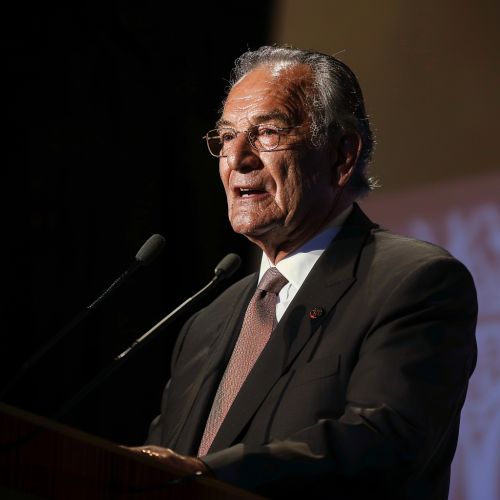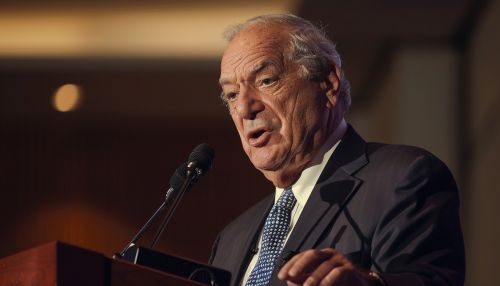Herman Kahn
Early Life and Education
Herman Kahn was born on February 15, 1922, in Bayonne, New Jersey, United States. He was raised in a Jewish family and spent his early years in the New York City area. Kahn attended the University of California, Los Angeles (UCLA), where he studied physics. His academic prowess led him to further his education at the California Institute of Technology (Caltech), where he earned a degree in physics. Kahn's early interest in science and technology laid the foundation for his future career as a prominent military strategist and futurist.
Career at RAND Corporation
In the early 1950s, Herman Kahn joined the RAND Corporation, a think tank that provided research and analysis to the United States Armed Forces. At RAND, Kahn worked alongside other notable figures such as John von Neumann and Albert Wohlstetter. Kahn's work at RAND primarily focused on nuclear strategy and the potential consequences of nuclear war. He became known for his unorthodox and often controversial ideas, which challenged conventional thinking about nuclear deterrence and strategic stability.
Kahn's most significant contribution to the field of nuclear strategy was his development of the concept of "escalation ladders." These ladders represented a series of steps or levels of increasing intensity in a conflict, from minor skirmishes to full-scale nuclear war. Kahn argued that understanding these escalation dynamics was crucial for policymakers to manage and control conflicts effectively. His work on escalation ladders was detailed in his seminal book, "On Thermonuclear War," published in 1960.
"On Thermonuclear War"


"On Thermonuclear War" is perhaps Herman Kahn's most famous and influential work. In this book, Kahn explored the potential consequences of nuclear war and the strategies that could be employed to prevent or mitigate its effects. He introduced the concept of "thinking the unthinkable," encouraging policymakers to consider and plan for scenarios that were previously deemed too horrific to contemplate.
Kahn's analysis in "On Thermonuclear War" was both comprehensive and detailed. He examined various aspects of nuclear conflict, including the psychological impact on populations, the economic consequences, and the potential for long-term environmental damage. Kahn also discussed the importance of civil defense measures and the need for robust communication systems to maintain command and control during a crisis.
While "On Thermonuclear War" was praised for its thoroughness and originality, it also faced criticism for its perceived cold-bloodedness and detachment from the human suffering that would result from a nuclear conflict. Nevertheless, the book solidified Kahn's reputation as a leading thinker in the field of nuclear strategy.
Later Works and Theories
After the publication of "On Thermonuclear War," Herman Kahn continued to explore various aspects of strategic planning and future studies. In 1962, he published "Thinking About the Unthinkable," a follow-up to his earlier work that further elaborated on the concepts of deterrence and escalation. Kahn argued that the United States needed to develop a credible second-strike capability to deter potential adversaries and maintain strategic stability.
In the late 1960s, Kahn shifted his focus to broader issues of future studies and societal development. He co-authored "The Year 2000: A Framework for Speculation on the Next Thirty-Three Years" with Anthony J. Wiener. This book presented a series of scenarios for the future, considering factors such as technological advancements, population growth, and environmental challenges. Kahn's work in future studies emphasized the importance of long-term planning and the need for societies to adapt to changing circumstances.
Influence and Legacy
Herman Kahn's work had a profound impact on the fields of military strategy, future studies, and systems analysis. His ideas on nuclear deterrence and escalation influenced policymakers and military planners during the Cold War. Kahn's emphasis on rigorous analysis and scenario planning also contributed to the development of strategic thinking in other areas, such as economics and environmental policy.
Kahn's legacy is not without controversy. Critics have argued that his analytical approach to nuclear war and other catastrophic scenarios lacked empathy and failed to account for the human dimension of such events. However, supporters contend that Kahn's willingness to confront difficult and uncomfortable topics was necessary for effective strategic planning.
